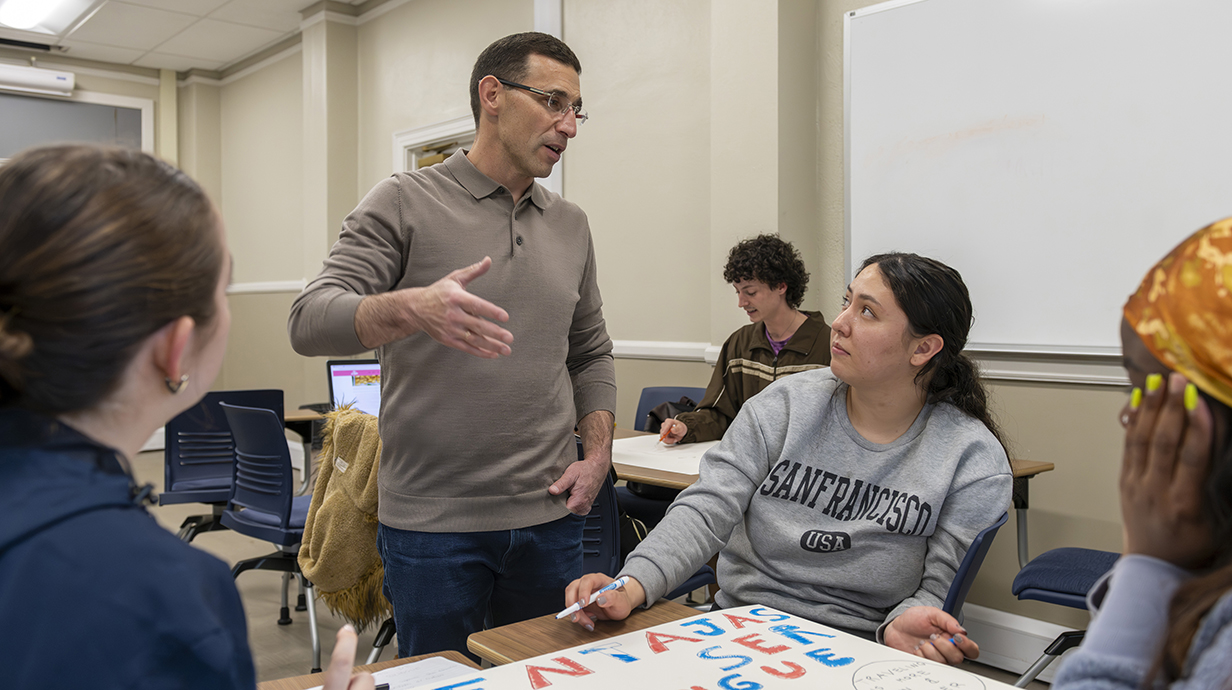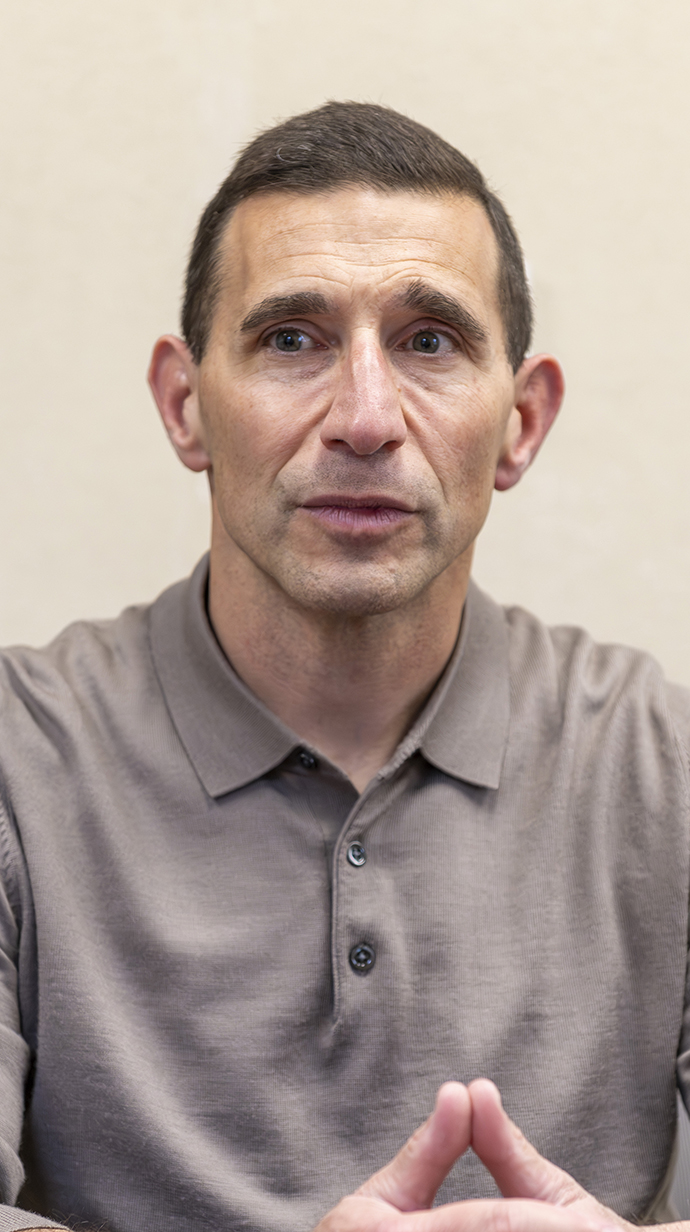Inaugural Faculty Laureate Hopes to Help Bilingual Mississippians
UM professor hopes to bolster, support bilingual education in Mississippi

OXFORD, Miss. – The Magnolia State has become a new destination for Latino communities, but a University of Mississippi professor said there's more work needed to bridge the gap between native Spanish speakers and other Mississippians.
Stephen Fafulas, associate professor of Spanish and linguistics, plans to use his position as one of two inaugural Faculty Laureates to help bilingual and minority language-speaking Mississippians as well as Ole Miss students.
"Even though the overall Latinx population is small in Mississippi and in northern Mississippi, it's more than doubled since 2000, and that's when the overall population in Mississippi has remained stagnant or declined," Fafulas said. "So, it is the group that's growing and it's growing at an incredible rate."
Though Mississippi's overall population has declined, more than 105,000 self-identified Latino people live in Mississippi, a more-than-29% increase over 2010, according to the 2020 Census.
Nationally, the number of people who spoke more than one language tripled from 23 million in 1980 to more than 67 million – almost 1 in 5 Americans – in 2019. But Americans still lag behind Europeans, 56% of whom can converse in two or more languages.

Fafulas plans to create a trial dual language immersion program – a program in which half of each school day is taught in another language – in a Mississippi school that has a high Latino population.
He also hopes to give Ole Miss students opportunities to employ their bilingualism through a multidisciplinary service-learning course, where they can learn to use their translation and interpreting skills in different job settings.
"It is so important that public universities like ours become engaged in local communities, and Dr. Fafulas' work helps build relationships with a population that often finds itself vulnerable," said Daniel E. O'Sullivan, chair of modern languages. "He works to lift up the voices of the people he works with, and I think it's remarkable."
Encouraging bilingualism in the state will help more than Ole Miss students, Fafulas said. It will help Spanish-speaking Mississippians become more ingrained into society.
"They are going to have barriers to health care, to education and to jobs, just because of accented speech, maybe the way they look, the way they dress, different cultural backgrounds, ethnic composition, whatever you want to call it, especially those that may be of indigenous background," he said. "They're going to have some of these kinds of barriers. That's some of what we're trying to address."
While these programs are ongoing, Fafulas said he also hopes to collect data about Spanish-speaking people in Mississippi and how the language has changed since it has expanded in the state.
"Part of the reason that this is important is sometimes we assume that when you understand one language population in a place like Miami or New York, you understand it everywhere," said Lewis C. Howe, professor of linguistics at the University of Georgia. "That's not true.
"You have immigrants from different parts of Central America, and you have populations that are somewhat newer in the Southeast and influenced by their new communities."
Fafulas and Howe partnered in 2021 to lead the SEC Spanish Consortium, a collection of scholars who are dedicated to studying Spanish language variants and Latino communities in the region.
"We think that uncovering or at least trying to understand the language dynamics in these local populations is really critical for understanding how people interact with their communities more broadly," Howe said.
Fafulas said his passion for bilingualism and second language acquisition comes in part from his own family. Fafulas' father immigrated to the United States from Greece and raised his children with both languages.
"I also grew up in a bilingual, bicultural household, so it's part of my DNA," Fafulas said. "It's part of my history. I grew up as well with the common struggles that bilingual, bicultural households have, which is, 'Are we going to maintain the cultural language, the heritage language, or are we going to shift to English because it's that's what my friends speak in school, and I don't want to feel like an outsider?'
"I mean, I went through that as a kid; I get that. But now I'm proud of that, and it's important to me."
The Faculty Laureates program is developed and managed by the Mississippi Lab and underwritten by the Daniel W. Jones Endowment for Faculty Support.
By
Clara Turnage
Campus
Published
May 01, 2024
